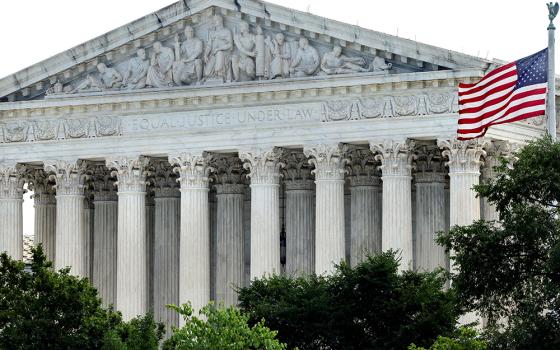The murderous thugs known as al-Shabab still hold hostages at the Westgate mall in Nairobi, Kenya. The Somali group – their name means “the youth” – stormed the shopping center around lunchtime on Saturday and have already killed some sixty-two people including a nurse from Holland who worked with the Clinton Health Access Initiative, a Ghanaian poet, a retired tropical disease specialist from Peru. In short, Westgate mall in Nairobi could have been almost any mall in the U.S. And there is the danger.
Terrorists tend to prefer iconic, stunning attacks. The image of the collapsing twin towers of the World Trade Center is an image burned into the consciousness of anyone who was alive on September 11, 2001. In the heart of America’s cultural and financial capital, the terrorists not only struck, they struck in such a way as to fire the evil imagination of their followers and, importantly, any sympathizers who might be inclined to join a recruitment drive. It was spectacular evil.
This desire for the spectacular seems a perennial among those whose hearts have been darkened by an attraction to evil. Hitler liked to stage ostentatious ceremonials at Nuremburg during Nazi Party rallies. Flags and bunting were everywhere. Throngs of people were crammed into the stadium. Storm troopers marched in behind poles adorned like those that once led the parades of Roman legions. It was spectacle. It was propaganda. It worked. The frenzied emotions of Hitler’s followers at such events came to feel they were a part of something great, their other, more humane loyalties were swept aside. The troops took oaths not to the nation but to the Fuhrer. When, with time, the Fuhrer demanded the impossible of those who had taken the oaths – hold Stalingrad, exterminate the Jews – they were incapable of resisting the call.
Catholic thinkers have bemoaned the twentieth century’s intellectual life as the age of skeptics. Freud said we could not trust our own reason, because it was awash in psychological dispositions over which we have no control. Nietzsche said we could not trust our most primordial, humane instincts, because only power mattered. Theology itself wondered about the “death of God.” Let us give two cheers for skepticism. A but more of it in Germany at the right time and amongst the right people might have kept the world from much misery.
We are told that al-Shabab has been greatly weakened in recent years, turned out of its Somali strongholds by African Union forces. “The fact is al-Shabab, at least compared with its own aspirations, is a shadow of its former self,” Dartmouth professor Daniel Benjamin told the Washington Post. Last night, one of the talking heads concurred, suggesting that al-Shabab would much rather have attacked a Kenyan army post, but that they lacked the resources to storm such a hardened target and were left seeking softer targets. This makes me very scared.
I remember a conversation with a friend after the September 11 attacks, a friend who has a knack for understanding the dark side of the human soul. He noted the economic disruption that had accompanied the attacks of September 11 but ventured that if Al-Qaeda really wanted to strike a blow at the U.S. economy, they would send small cells of terrorists into a couple of different shopping malls on the day after Thanksgiving. The next weekend, they would repeat the attacks in different malls. Given the fact that as much as 40% of retail activity happens in relation to Christmas, these attacks on “soft targets” could cripple the U.S. economy. I said then, and maintain the hope now, that such pedestrian attacks do not attract the plotters of Al-Qaeda: Such attacks are not spectacular enough, they would seem like a step down in military prowess from felling the World Trade Centers. But, I think my friend is right about the consequences of such attacks and pray to God that those who seek to bring terror to the world will never adopt such a cold, correct calculus, that their attraction to the spectacular will continue to lead them to plan large, more easily detected, less frequent, attacks.
This Somali group is likely to maintain their focus on their neighbors who have sent troops to quell the violence in Somalia. As they lack the resources for the spectacular, we can expect more deadly attacks like the one that is still on-going in Kenya. We must hope that they do not stumble into an awareness that they can do much more damage to those neighbors by continuing such attacks on soft targets. And we must hope that Al-Qaeda does not see this as well. The world remains a dangerous place. Those whose hearts are warmed by images of killing innocents often lack the perspective to determine upon a more effective strategy if that strategy does not appeal to their zeal for what stuns. That zeal may be their downfall. If they lose it, life could get much uglier very quickly for dozens of Western countries were the local shopping mall is a favored recreation.





